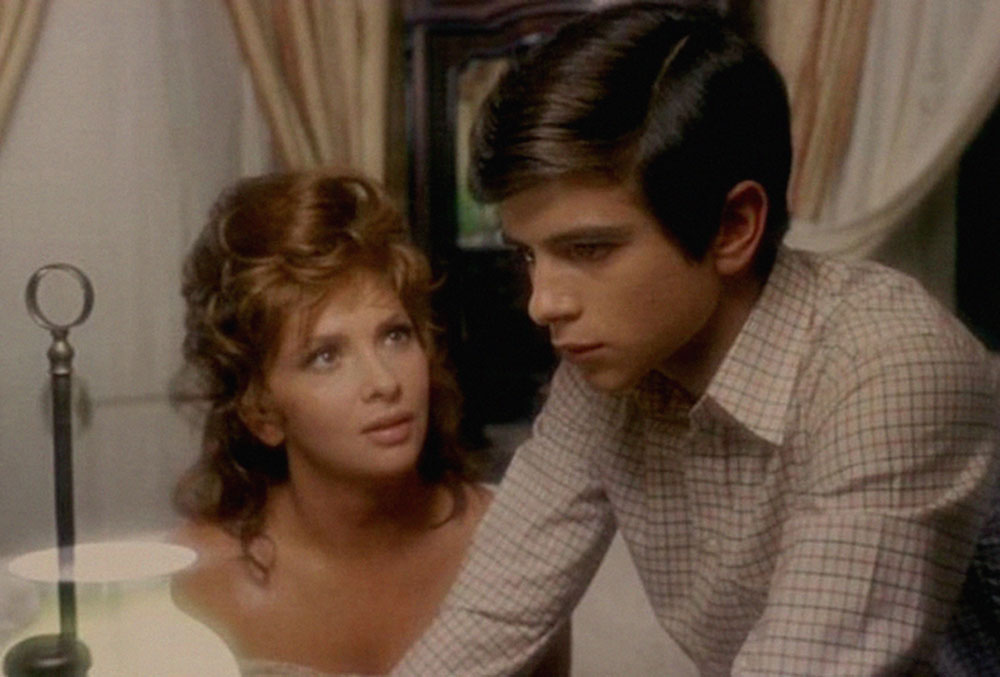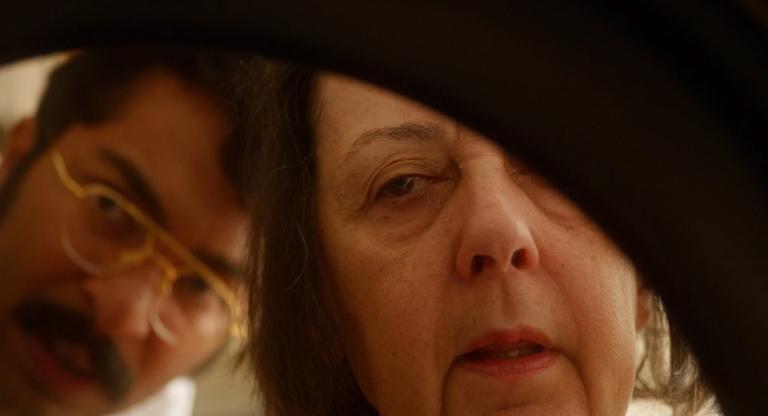In Italy, every region venerates its own patron saint. For Nino (Paola Turco), a brooding Sicilian teenager and the protagonist of Mauro Bolognini’s 1968 family drama That Splendid November, that idol is Cettina (Gina Lollobrigida), his beautiful aunt. Nino and Cettina unite when their large, aristocratic family gathers at its seaside villa in early November for an All Saints’ Day celebration—a time when the dead leave gifts for the living (Nino gets a diver’s watch). Still reeling from the death of his father some years earlier and negotiating his mother’s new relationship with another man, Nino channels his swallowed feelings and hardened jealousies into a fervent pursuit of Cettina.
Cettina, a woman of caprice, stokes and stifles her nephew’s ardor. She lets Nino dote on her, encouraging his favors and the relentless surveillance of his probing gaze. At one point, with expertly affected innocence, she instructs her horny nephew to pour pitchers of cool water over her body as she stands wearing a flimsy nightie in the bathtub. But, as the holiday wears on, she methodically pulls herself away from Nino. Buoyed rather indelicately by her husband, Baigio (Gabriele Ferzetti), she begins an affair with his business associate, Sasà (André Lawrence), in efforts to secure funds for an ambitious building project.
In one striking scene, Nino envisions a sexual liaison with his aunt during mass in the family chapel. Meanwhile, Sasà revs the engine of his red sports car as he bounds up the villa’s driveway to take Cettina away. Later, Nino bitterly questions Cettina about the fling and she rebuffs him, stopping just short of Natalie Portman’s “That’s what grown ups do” speech from Todd Haynes’s recent May December (2023).
Ennio Morricone furnished fifteen scores for Bolognini, and the one he created for Un bellissimo novembre is full of longing and foreboding. It punctuates the intensity of Nino’s torment and the sense of family scandal that lurks in the corners of the shadowy villa, resolutely matching the film’s drama. It’s a stark contrast to the use of music in May December; Haynes wields Marcelo Zarvos’s piano theme—a reworking of Michel Legrand’s score for Joseph Losey’s The Go-Between (1971)—to both evoke and spoof melodrama, its intensity at times purposely out of step with the action on screen. Still, these three films—Bolognini, Haynes’s, and Losey’s—form an intriguing brotherhood. They all investigate damaging sexual experiences that boys have with older women, each showing these relationships and their consequences in varying stages of development. In That Splendid November, rather than the scars of the past (May December) or the implications of the future (The Go-Between), we see the thrill and agony of a torturous present, brought to vivid life with Morricone’s lush score.
That Splendid November screens tonight, December 22, at the Museum of Modern Art as part of their Ennio Morricone retrospective, co-presented with Cinecittà, Rome.



